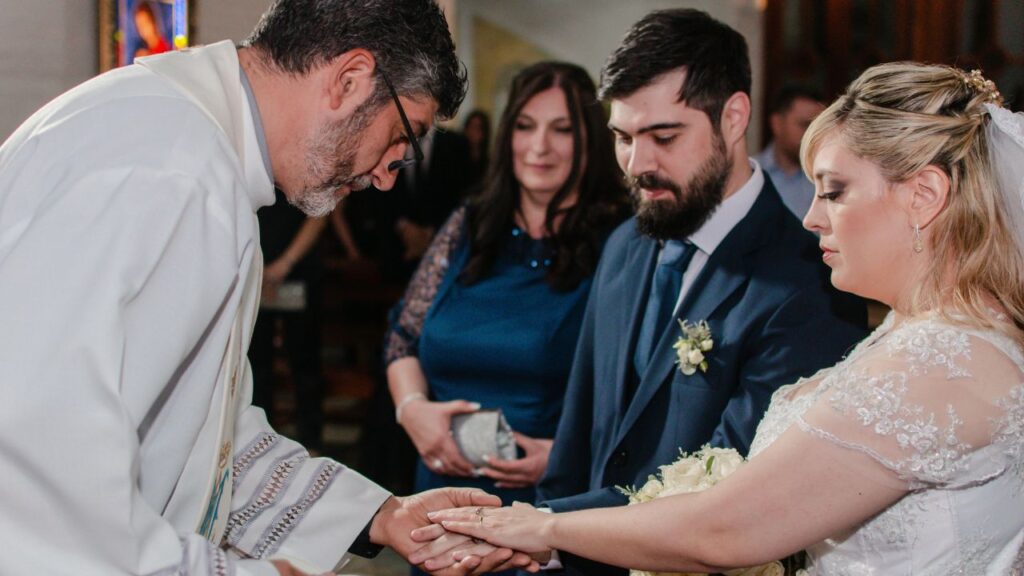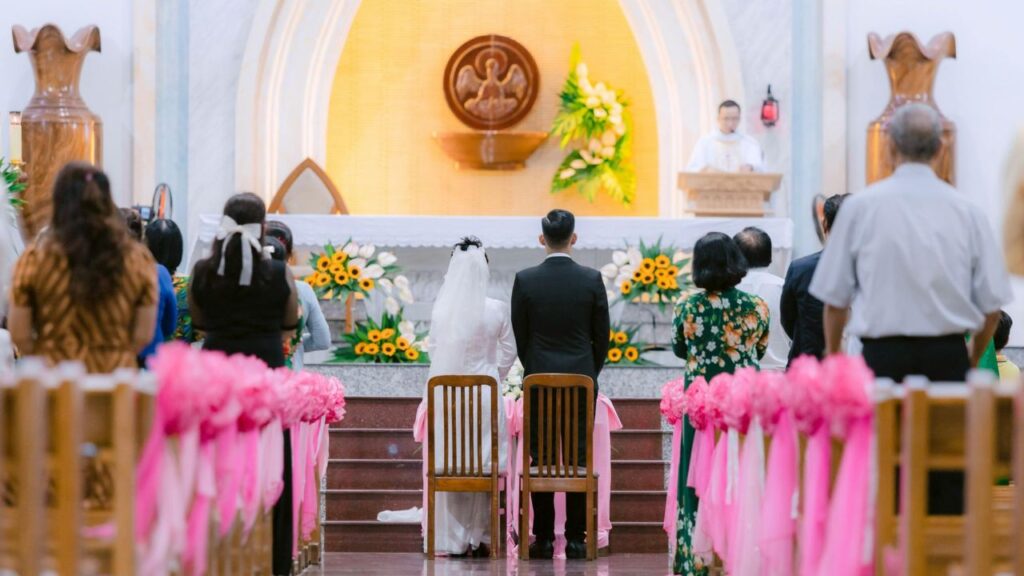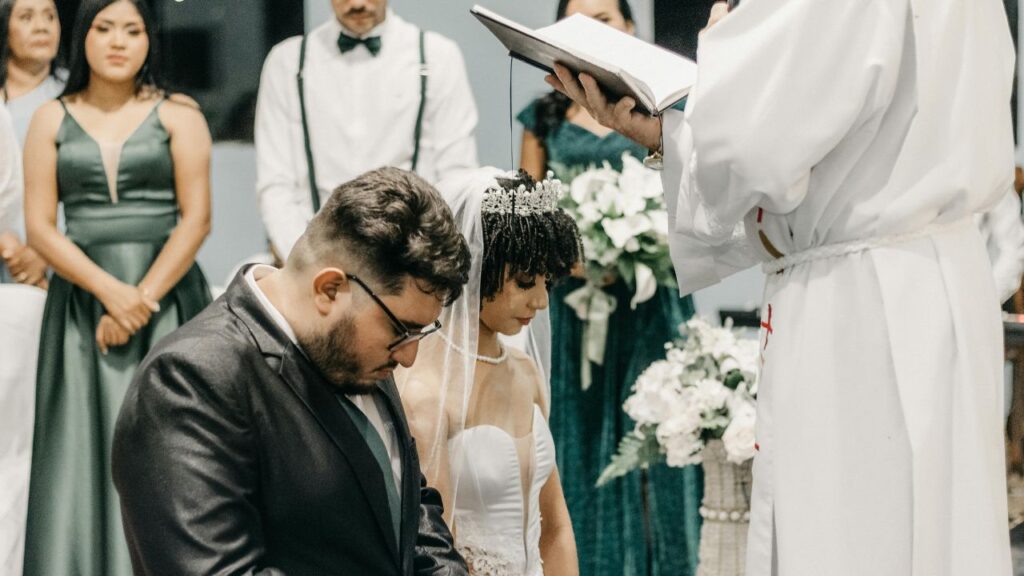Couples cohabitating without a formal wedding ceremony in Kansas pay close attention to the topic for the most part. Common law marriage in Kansas. The differences between common law marriage and traditional marriages are that there is no requirement. To make use of either a marriage license or a civil ceremony in order to form a common law marriage. Rather it is based on the mutual agreement of the parties to the marriage and on their living together. There are many legal rights in a common law marriage in Kansas that are almost indistinguishable. From the rights of formally married couples, however, you need to know what those requirements are and what they mean. The term common law marriage is defined in this article and we shall discuss. The legal requirements to establish in Kansas. The rights and responsibilities of common law spouses. And what one should do if one is considering entering into this kind of union.

What is Common Law Marriage in Kansas?
Kansas common law marriage is a legal partnership between people. Who live together for a while and who are not married but behave as though they had married in this country. Although this kind of marriage is not that common today. It still has serious implications in terms of property rights, inheritance and child custody. Under Kansas law, however, many people may think that if they live together for a long period of time. Then that makes them common law spouses, but in reality there are certain criteria that need to be met for one to be termed common law spouses. To anyone who is thinking of getting involved with this arrangement, it is important to understand these requirements.
Requirements for Establishing Common Law Marriage in Kansas
However, to satisfy the elements required to establish a common law marriage in Kansas, a number of requirements must be met. Second, there are some actions (like calling each other a spouse and living in a house together) that can show that both parties intend to be married…. Secondly, the couple must cohabit, that is, live together in the same housing belonging to the respective partner. And finally, there must be a realization that they are married in. The manner of having shared financial responsibilities, joint bank accounts, or similar signs of a committed partnership. Kansas does not have a minimum cohabitation time requirement. But the entire circumstances need to very clearly indicate that a marital relationship exists. In addition, both parties should not be legally married to another person, and should be of the proper age and have given consent.
How to Prove a Common Law Marriage in Kansas
Kansas has no documentation of the formal ceremony to prove a common law marriage, making it sometimes difficult to prove. Nevertheless, one can use various forms of evidence to prove that the relationship exists. Such things as joint tax returns, shared insurance policies, bank accounts with both names. Lease agreements where both people are listed as tenants would all constitute a common lifestyle. Friends or relatives can provide writing affidavits confirming their relationship with the couple. Other than that couples can also apply to the state for a common law marriage certificate if they want to further formalise their relationship. If you need to present your common law marriage for legal reasons. It’s a good idea to get it documented or gathered by consulting with a legal professional.
Legal Rights and Responsibilities of Common Law Spouses
In fact, common law spouses (also referred to as couples in common law) in Kansas have many of the same legal rights and responsibilities as a formally married couple. These rights include inheritance rights, decision making in healthcare issues for a partner. And the right to partner’s benefits that are typically only available to married people. In divorce, the claim common law couples have on shared assets may be the same as other married couples. In addition, common law spouses are usually given the same rights for child custody and support issues. Though, it is necessary to record such arrangements and rights too because there will be complications if these things are not properly documented. Couples can easily understand and recognize these rights and that can help them navigate entangled disputes and have peace of mind with their legal position.

The Process of Dissolving a Common Law Marriage
The ending of a Kansas common law marriage is much the same as ending a traditional divorce. Should a pair decide that they want to divorce. They have to deal with issues pertaining property division, child custody and spousal support. In Kansas, a common law marriage cannot be dissolved unless there has been some formal divorce proceedings. Nevertheless, many people will choose to seek legal advice to cover all aspects of the separation. Negotiating friendly terms is a common practice from many couples. But when disputes come up, legal representation may be needed. When it comes to the dissolution of a common law marriage, emotional and financial factors are crucial to take into account since it can cause both parties’ lives to take a turn for the worse.
Common Misconceptions About Common Law Marriage in Kansas
In Kansas, common law marriage can also be a source of confusion among couples with several misconceptions surrounding it. Many of the common myths have to do with the fact that friends who have been sharing a house with each other for years automatically become common law married. Earlier we had discussed that to have this type of marriage. There should be cohabitation, clear intent that the couple is married and that they are married. A big misconception that people associate with is that couples have the right to all the legal qualities. Of marriage without actually asserting their relationship as a couple. While rights are afforded to common law spouses. They may require proving the marriage in some situations. Such as to determine whether action will be taken for inheritance claims or custody disputes. Consequently, it is essential for couples who are considering or already in a common law marriage to clear. These misunderstandings so as to make informed decisions regarding rules and obligations within their relationship.
Frequently Asked Questions About Common Law Marriage in Kansas
However, numerous people have questions regarding the particulars and effect of a common law marriage in Kansas. Some of the common inquiries involve the set up of the marriage, legal rights. How to dissolve the partnership whenever necessary, and so on. As with most other questions pertaining to the topic of common law marriage. Answering these can assist in demystifying the idea of common law marriage and relieve the confusion. For example, some people also question whether or not they need to fill out any paperwork to be recognized as common law married. To satisfy the requirement to be legally recognized, the answer generally. Requires acquiring abundant evidence that holds the relationship.

The Impact of Common Law Marriage on Taxes and Finances
Failing to follow through with these matters regarding taxes and finances can become problematic if a couple has an irregular relationship in the state of Kansas, or within the city of Kansas. On taxes, common law spouses are treated in exactly the same manner as are married couples. They may join on tax returns and use the tax breaks that are available to married couples. Nevertheless, it’s important to note that they have to reach a consensus on how the couple manages their finances and files while paying taxes, which is important to the overall financial health of the couple. However, many couples in common law marriage benefit from putting their finances together by introducing joint bank accounts or dividing the bill, for an easier way of managing their finances and demonstrating their willingness to be a couple. A nice financial plan can reinforce the relationship and maintain both parties responsible for responsibilities.
How to Transition from Common Law Marriage to Formal Marriage
There are couples that finally choose to go from a common law marriage to a legal marriage. It also may offer additional legal protections and society recognition upon this transition. First of all, couples have to take the necessary steps to get a marriage license and to attend a wedding ceremony. In this case, applying for a license with the relevant. Local authority usually has to be done and you will need to pay whatever ‘fees’ apply. After the marriage license has been obtained by the couple. They can carry out the wedding ceremony, of a sophisticated nature or of a simple and easy type. A common law marriage can be formalised to reinforce the commitment of. The couple and give the law more security as to where they stand.
Seeking Legal Help for Common Law Marriage Issues
Common Law marriage in Kansas can mean several different things, depending on a number of different factors, and can prove a daunting subject to navigate, with all of the challenges that can arise. In cases of disputes over the property, child custody arrangements, or any marital conflicts, often one takes the help of a lawyer. The presence of a common law marriage historical affiliation can be extremely useful when paired with an attorney experienced in family law as they would be able to guide you through your rights and to avoid as much of a legal hindrance as possible. Furthermore, they could assist creating documentation or evidence that is required to back up claims pertaining to the partnership. Legal professionals are consulted and ultimately couples’ rights and responsibilities are discussed between partners.
The Importance of Documentation in Common Law Marriage
The role that documentation has in the creation and maintenance of common law marriage in Kansas is significant. Couples in the second type may not have marriage certificates but, having maintained a record of their relationship is helpful for substantiating later claims should disputes arise. These documents include joint bank statements, lease agreements, shared insurances, etc demonstrating a commitment and partnership. Such agreements can also be of great importance as written proof of property ownership or custody of children. Organized records can ease many of the problems that may be associated with common law marriage, giving couples comfort in the course of their partnership.

Cultural Perspectives on Common Law Marriage in Kansas
Sometimes there can actually be differences as to what common law marriage consists of across different cultural backgrounds. Societal attitudes toward common law marriage in Kansas vary widely by such things as tradition, religion and personal beliefs. The formality of traditional wedding as opposed to common law marriage shows that some people may find the letter informal. Indeed, others will choose to accept the easy and simple one of a common law marriage as a perfectly valid and lawful marriage. A fundamental first step in that direction is understanding these cultural perspectives to have an understanding of the couples’ beliefs and views about relationships and marriage and they develop their partnership on their own terms.
Addressing Common Law Marriage in Property Ownership
Couples living in a common law marriage have one important thing concerning property ownership to think about. In a common law marriage, there are certain rights of property on acquisition of the same during the relationship like in a common marriage. However, if no documentations are present, disputes may arise while separating. In understanding the property ownership characteristics of a common law marriage, the couple can have some idea of how assets should be divided. Partners would be better off discussing the intentions on which they intend the management and ownership of the property and if possible draft agreement related to the ownership to avoid breaking of future misunderstandings.
Resources for Couples Considering Common Law Marriage
There are just various resources for couples looking into entering a common law marriage in Kansas. They can branch out to local family law firms, community based organizations and online resources that service relationship education because these resources are able to offer useful insight into the rights and responsibilities of common law marriages. If you are able, attend a workshop or seminar that deals with relationship building or legal rights within marriage so as to enable informed discussions and provide the necessary support you can draw from while deciding your next steps. Reputable resources give couples power to make the best of their choices and help prepare them for what comes next in their relationship.
Difference Table
| Feature | Common Law Marriage in Kansas | Traditional Marriage |
| Legal Recognition | Recognized as valid in Kansas | Universally recognized across states |
| Formal Requirements | No ceremony or license needed | Requires a marriage license and ceremony |
| Cohabitation | Must live together for a significant period | Not required, but typically occurs |
| Intent to Marry | Must demonstrate intent to be married | Implied through the ceremony and license |
| Age Requirement | Must meet state age requirements (18+) | Same age requirements (18+) |
| Evidence of Marriage | Can be proven through cohabitation and public representation | Marriage certificate serves as proof |
| Dissolution Process | Similar to traditional divorce proceedings | Standard divorce proceedings apply |
| State-Specific Nuances | Unique to Kansas, with specific case law | Uniform across jurisdictions |

Conclusion: Navigating Common Law Marriage in Kansas
In sum, Kansas common law marriage is an acceptable solution to formal marriage for couples while still offering many legal rights and duties. Whether or not establishing a common law marriage is appropriate and accepted in all cases; it is important for any couple to learn what the requirements are for setting up a common law marriage, the rights and responsibilities that come with it. However, if couples do it right, they will be able to communicate clearly, document everything, and understand the legal implications to get through this in a success.
FAQs
1.How long must a couple live together to establish a common law marriage in Kansas?
In Kansas, no minimum time period that a couple must live together to obtain common law marriage is set. But the most important thing is the mutual agreement by the couple to be married and how the couple chooses to project to the public that their relationship is being presented as a marriage.
2.Does Kansas allow couples in a common law marriage to file taxes jointly?
Yes, two people who are in a common law marriage in Kansas can file joint income tax returns and address each other as husband and wife. The time that these tax benefits can be accessed is not defined by a specific length of time that you and your spouse have to have been living together.
3.What happens if a common law marriage ends in Kansas?
A Kansas law of common acquaintanceship that admits the care of its person and property, and which is evidenced by both words and deeds and free public repute, can not be dissolved but by death. In any case where the same legal principles regarding property and spousal rights applied, it is the same in gay marriages as it is in conventional marriages.
4.What are the requirements for a legal marriage in Kansas?
The law has children ages 16 and 17 must have the parental consent or a court judge’s permission to get into a legal marriage in Kansas. In addition, they will have to present a certified birth certificate, and the fee to have it printed can vary from county to county. Residency and blood tests are not required.
5.Is common law marriage recognized by Social Security in Kansas?
In Kansas Social Security does recognize common law marriages. Kansas is one of the states in the agency’s list of states that take common law marriage into account for purposes of listing them as states that acknowledge it, unless the law or court decisions specify otherwise. In other states, Colorado, Iowa, Montana, New Hampshire, Oklahoma, Rhode Island, South Carolina, Texas and Utah also recognize this type.
